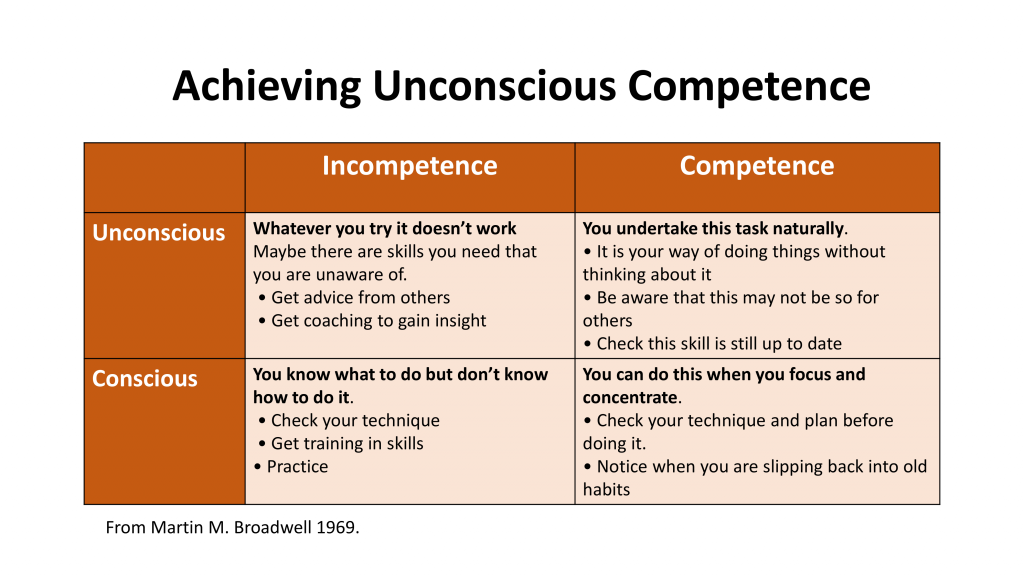Making the transition from freelancer to business owner
Some time ago you left employment to set up on your own. Whether it was your own choice or one forced on you by redundancy you’ve made a success of turning your specialist skills into a service others want to buy. You’re now looking at how you can grow further.
That can be for many reasons. Maybe you’ve hit your ceiling and run out of hours to do the work or got more ambitious as you realise there are considerably more people you can help and more money to be made if you scale up the business. And you’re probably right.
If you think this might be a risky venture as you don’t want to jeopardise your current success. You’re probably right about that too!
So what are the three most usual hazards that can trip you up if you haven’t planned for them as your business grows to be bigger than just you? If they are not what you expected to see then that’s great, I may have saved you a lot of grief down the road.
The Peter Principle has been around for a long time. Laurence Peter and Raymond Hull popularised Peter’s theory in their 1969 book of the same name. The theory is that people in a hierarchy tend to get promoted to their level of incompetence.
Well, hey, here you are introducing a hierarchy to your business and the only one getting promoted is you. Now you’re more than a technical expert you’re the leader and these other people are looking to you for their direction.
The chances are that in the beginning you may have a mix of outsourced specialists as well as employed. Whilst financially this may be the best solution it does add its own challenges in getting the right mix of people and bringing them together as a team.
Then there’s the translation of all that stuff in your head about how you like things to be done. How much latitude do you give people to find their own way and how much needs to be standardised? How do you mentor and teach your people to deliver for you? How to you tackle poor performance as well as rewarding the good? How do you stay true to your values that made you set up your own business in the first place?
As well as your leadership skills, other more technical tasks become more complex. With a team come additional costs and understanding the numbers and making predictions becomes imperative. As does an effective and sustainable approach to sales and marketing.
You can take comfort that you know what works, the evidence is in your success. As soon as you start to scale up the business just gets more complex. Use the competency exercise in the box to assess for yourself how proficient you are at some of the new tasks you find yourself doing and equally notice the new problems that keep emerging.

Imposter Syndrome
An exercise like this is also useful to stop you tripping yourself up through a degree of Imposter Syndrome. This term also has a long pedigree since it was introduced by Pauline R. Clance and Suzanne A. Imes in a 1978 study looking at high-achieving women who experienced what Clance and Imes described as “an internal experience of intellectual phoniness”. It has now been recognised as a phenomenon for many men and women who are used to performing well but suffer feelings of insecurity and loss of confidence when put in a new position. That sense that they don’t deserve to be there and that one day they will get caught out. Now it’s important to say at this time that the degree to which this applies can differ considerably. Whilst not classified as a mental illness, if this does affect you deeply I recommend seeking the appropriate professional help.
Here I’m simply raising the issue of how the syndrome can affect you as you make the transition to business leader. The change of role and the image of how a successful leader should look and behave like can compel you to overperform and set very high goals to justify to yourself that you deserve this success. All the time that little voice in your head doesn’t believe it and justifies it as luck so you have to aim higher to live up to the new expectation of you.
Equally though, some leaders react the other way, eschewing the limelight and playing down or fudging their new role, taking every opportunity to drift back into the comfort of the technical role
Another sign that the new leader is not comfortable with owning their role is a reluctance to change their job title from a technical descriptor to director even though their role changed. I have had three such clients in the last year all with a similar rationale that it makes them feel self-important as they haven’t earned it yet. One of which was seeking my advice as she had just had a resignation from a member of staff who cited lack of leadership from my client as the reason for leaving.
The others
Ahh number three in the trip hazards is about actively managing the other stakeholders in your business. You need to take into account how it affects them if you want them to support and assist you in making the change. Here I thought I’d give you some further examples drawn from either my experience or in conversation with others who have made the change. I hope you noticed the recurring theme that they all want more access to you.
Clients. It would seem that clients should really not have any issues with you developing your business. However many an accountant has told me tales of obtaining new clients because they no longer had direct access to their existing accountant and disliked speaking to a different person every time they phoned.
Staff. The introduction of a management structure meant the staff no longer had easy access to the leader. This led them to ganging up on the new manager on the Friday of their first week and would not return to work the following Monday. As a result the leader had been through four managers in four months.
Family. In a coaching session the client recognised that they were self-sabotaging the business development work they had done. Her very successful father had never had time attend her sports day or school plays or birthday parties. To her success meant working long hours and neglecting her children. Then in one of those “aha” moments coaching is famous for, she recognised that right now she was working long hours and neglecting her children to be unsuccessful.
Like most trip hazards once you’re aware of them you can often devise your own avoidance tactics. However, I’ll add my three tips to avoid three trip hazards on your road to making a successful transition to be the business leader you want to be.
- Tip 1. Add your own personal development to your business plan. Use the competency guide to help you
- Tip 2. Be clear on what your new role will be. How you see yourself as this successful leader and how you present yourself to all your stakeholders
- Tip 3. Take your stakeholders with you on your journey they will give you the reality check you need when you have those moments of self-doubt. They’ll also be there to celebrate your success and make sure you do too!
Originally posted 2022-12-01 12:57:26.
- Strategic thinking in stages - February 23, 2026
- You have the power, be brave and say “No”! - December 12, 2025
- Giving is good for business…sometimes - November 24, 2025






